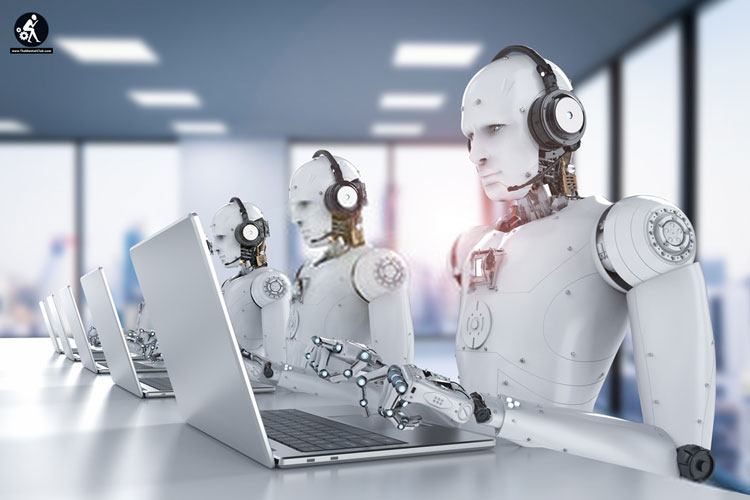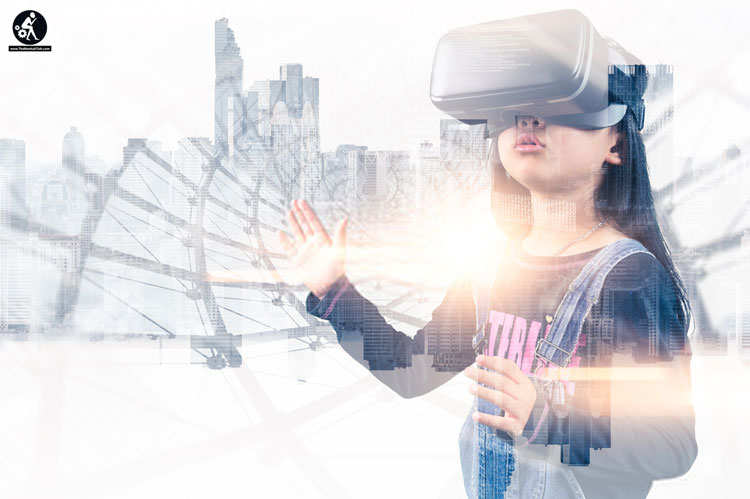
Artificial Intelligence has become a huge part of our lives in recent years, often without us even realizing just how important a role it plays in the modern world! From automatic parking systems to Siri and Alexa, AI helps us constantly as we navigate this technology-driven 21st century. In fact, we might not even know how much of a difference AI makes in our lives and in all sectors – and education might be one of those areas we might not think of as particularly AI orientated.
Nonetheless, Artificial Intelligence in education is changing practices, transforming traditional methods of teaching and academia drastically.
So, if you’re curious about how AI has been altering the education sector, read on for the 6 main changes AI is making in education.
Enabling Personalization and Individualized Learning
Thanks to AI, the education world is becoming more personalized, easier to navigate, and much more convenient to use.

“One of the most interesting changes AI is making is in differentiating between learning needs and allowing students to adjust learning based on their own individual needs. For obvious reasons, it’s hard for a teacher to evaluate every student in a class and meet their personal needs, but with AI it suddenly becomes much easier,” says Sharlene Hampton, personal trainer at Academized and Paper Fellows.
Companies like Content Technologies and Carnegie Learning are developing programs that use AI to test students and gather feedback, enabling them to discern gaps in knowledge and direct students to new topics when necessary. This is, in effect, the first step toward customizing curriculums to each student’s needs, which may be available in the future!
Since traditional curriculums are designed to suit as many students as possible, by targeting the middle, some students who are below or above this are struggling to keep up or reach their full potential. AI helps teachers personalize tasks to allow each student to perform to their best.
Greater Communication with Educators
Instant (or near-instantaneous) feedback is crucial to successful learning. Using AI apps, students can receive customized responses from their teachers, much quicker than traditional paper marking and feedback forms. Students can also contact their teachers out of class-time using email or instant messaging, meaning they don’t have to wait for a class or office hours to have their queries answered. Smart tutoring systems offer quick feedback and mean teachers don’t need to be working out of hours!

Improved Learning and Study Materials
“Textbooks and other learning materials are taking a turn for the better – AI systems are creating ‘smart content’ that is customized and easier to use than traditional textbooks,” says Hannah Flynn, fitness instructor at Australian help and State of writing.
Cram101, for example, is an AI that navigates textbooks for pupils and makes the contents more comprehensible by offering chapter summaries, flashcards, and practical tests at the end of each section.
Enabling Learning Online
The way students are learning has changed, too – educational materials are available through smartphones and computers, and are easier to search through and access information from. Some students study completely online and don’t even attend physical classes – others are able to replay lectures online or submit coursework online in tandem with face-to-face classes. Virtual content like audio and video lectures are also being made available, and Netex Learning is a platform that allows educators to create electronic, flexible curriculums which integrate many different sources of information – audio, videos, and online help programs.

Although most education experts believe the presence of teachers is irreplaceable, AI is a welcome addition and supplement to traditional teaching methods.
Managing Administrative Tasks
Teachers and educators can now spend more time with their students, as AI automates a lot of administrative tasks and takes away the burden of repetitive, time-consuming admin work. Grading is the most obvious example of this, and software developers are working on AI that can grade written assignments as well as multiple choice tests.
Making Education Universal
AI programs like Presentation Translator can translate lectures real-time, helping those who don’t speak the taught-in language as a native speaker. AI software is also being used as an aid to hearing or visually impaired students, and to combat learning difficulties like dyslexia. So, AI is helping to break down the barriers between disadvantaged students and others, and making education available and easily accessible for everyone!


































